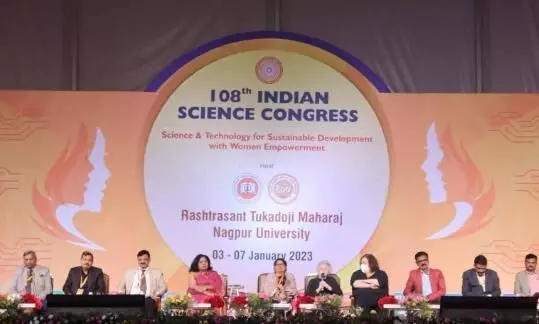
Premature death of Science Congress
text_fieldsThe Indian Science Congress Association (ISCA) was formed in 1914 with its headquarters in Kolkata, aiming at the growth of the science and technology sector in India. Perhaps, this movement initiated by British chemists Prof JL Simonsen and Percy Alexander McMahon, could be the first association of scientists in the country. One of the primary objectives of the organisation was to hold a scientific conference every year. Thus in the first year of the Indian Science Congress conference, 105 Indian scientists participated. The movement that was formed by the British was further popularised by the Nehru government after independence. The science conference gained global attention as Nehru himself stepped in to make the Science Congress more popular by giving opportunities to students and young people and by inviting eminent scientists from foreign countries. The first prime minister was convinced that scientific progress in the country could only be achieved if scientific awareness was created among the people along with the growth of the research sector. Today, ISCA has become a platform for more than 35,000 Indian scientists.
There has been criticism that after Modi came to power, everything has changed and the Science Congress has completely lost its lustre. This time, for the first time in history, the Science Congress itself has lost existence. The organisers have informed that the conference which was supposed to start on January 4 has been postponed. According to reports, differences of opinion with the central government prompted ISCA to cancel the conference. Earlier, the Union Ministry of Science and Technology had come forward, alleging a lack of transparency in the organisation's financial transactions. However, ISCA denied the allegation and challenged the Ministry to investigate the matter. In response to this, there was a 'threat' from the Ministry that the funds for the Science Congress would not be provided in full. Even then, the country's scientific community shared concerns about whether the Science Congress would be held at all. ISCA, even then, promised that it would go ahead with the conference. They also discussed with various institutions and organisations in search of funding. It met with some success. Lucknow University was initially selected as the venue for the conference. Later, the venue was shifted to Lovely Professional University, a private university in Punjab, to cut costs and get more funds.
It was on this change of venue that the Centre disagreed and announced that it would not release funds for the conference. With that, things became uncertain. In the meantime, Lovely University also withdrew from hosting, which stalled the great science conference, which was the pride of the country. Beyond the sheer technicality of funding, the fact is that the central government has little interest in scientific conferences like this. All the Indian Science Congresses held after the Modi government came to power have only made us look ridiculous. Efforts have been made for a few years to present the Puranas and Epics, first as history and then as science, by forming new branches of science called 'Puranika Shastra' and 'Bharatiya Shastra'. How many 'science papers' on Hindutva were presented there! In the 2019 Congress, Andhra University Vice Chancellor G. Nageshwar Rao asserted that Indians had knowledge of stem cell research and artificial insemination technology thousands of years ago. In that paper we read that the Kauravas were test tube babies and the Sudarshana Chakra and others point to missile technology in 'ancient' India. Another 'scientist' took the same stage with the argument that Newton was wrong in his theory of gravitation and Einstein in his theory of relativity and that the scientific community had to go back to mythology for proper knowledge. In this way, the Indian Science Congress had sunk to the point of making all the proper scientific research going on in India irrelevant. Once, CV Raman criticised Nehru for inaugurating a Science Congress. He asked then Nehru being a politician and not a scientist what business he had at a science conference. Nehru was said to have taken the spirit of that criticism. It was this tradition too which Science Congress made its part that the Sangh Parivar subverted as part of its agenda. Within ISCA itself, criticism has arisen as to why there is a science congress of this kind. It is the reflection of this criticism that has now come out to the fore.























